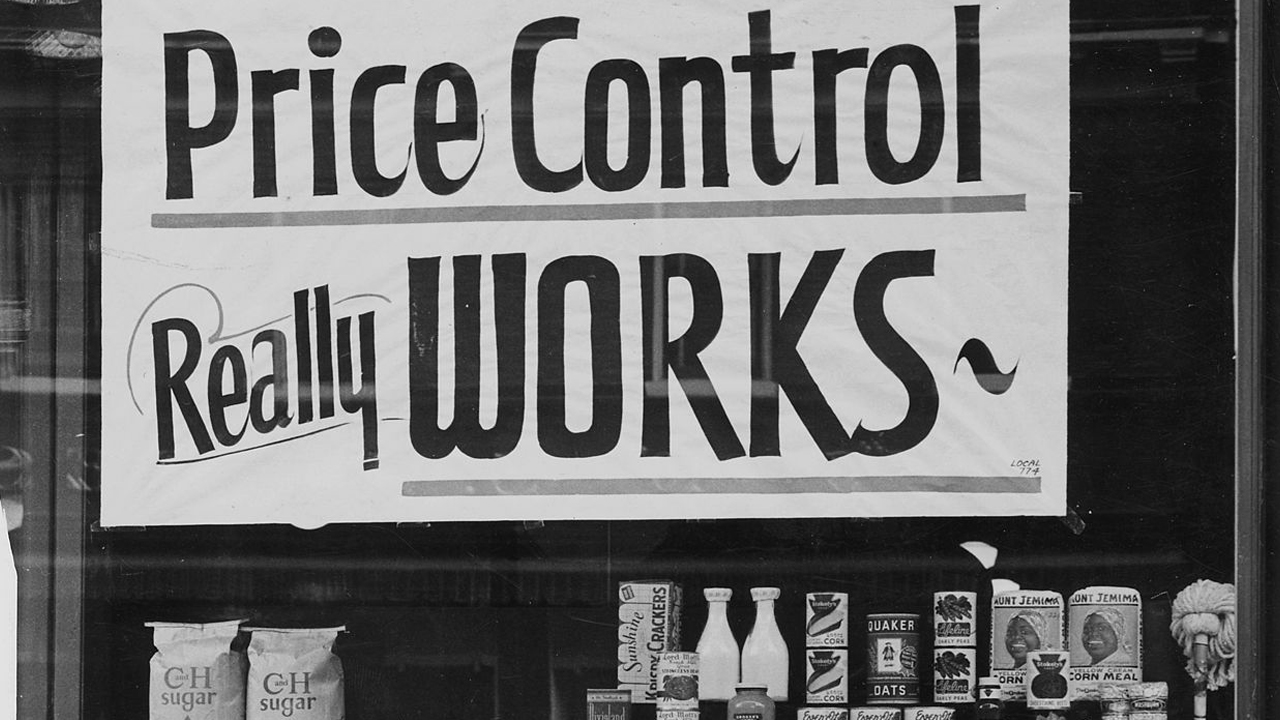
The global economy is looking grim and international trade has been severely restricted, so government-mandated price increases are returning with avengeance. Europe is suffering from significant financial hardships stemming from the Ukraine-Russia war, and just recently the Kremlin disrupted the European Union’s main gas supplies. G7 finance minsters and members of the European Commission are now trying to put price caps on oil and electricity.
Axios Editorial Claims Price Control Ideas Are Being Taken up by ‘Influential Economic Thinkers’
After the Covid-19 pandemic, and massive stimulus funds worldwide, the Ukraine-Russia conflict has sent the global economy spiraling. This past weekend, global economists discussed how Russia wants the “collective West” to lift the financial sanctions against the country.
Dmitry Peskov (a spokesperson for Vladimir Putin) claims the Nord Stream 1 pumping problems are due to financial sanctions imposed on the country. Reuters reported that “European gas prices rocketed as much as 30% higher,” following Peskov’s statements.
Nearly every single day during the last few months, reports note that “Europe is bracing for a brutal, cold winter,” this year as the price of gas — used to generate electricity and residential heating — has soared to colossal heights. Politicians have been forced to reintroduce price controls that were not used since the seventies due to rising gas prices.
Reinstating price controls was a topic that resurfaced late last year. It sparked many conversations throughout 2022. However, with the outbreak in conflict between Ukraine and Russia, these discussions are now a common reality.
On September 6, 2022, Axios Markets author Matt Phillips explains in an editorial that mandates on prices are “no longer a 1970s relic,” and the reporter adds that “price controls are back.” Phillips’ editorial discusses the G7 finance ministers’ meeting last Friday and how the members “pledged to put in place a plan aimed at limiting the amount of money Russia makes from oil sales.”
Furthermore, the reporter adds that the European Commission revealed plans last week to initiate an “emergency intervention and a structural reform of the electricity market.” Price controls have been on the minds of politicians worldwide and the trend is taking place in America as well.

Recently, price caps were placed on certain pharmaceuticals in the U.S. and drug companies must pay penalties if insulin prices rise excessively. The Federal Reserve St. Louis Branch has written about price controls, and it offers a counter-point to most of the current bureaucrats.
“As inflation rises, some have called on the government to impose price controls,” the St. Louis Fed’s report on the subject notes. “But such controls have significant costs that increase with their duration and breadth.”
Price controls are not supported by basic economics. These laws could distort natural markets. Many economists agree that price controls can also suppress or disrupt demand and supply.
The price cap policy, which can lead to black markets and hoarding as well as rationing and queuing that can actually raise the price of consumer products over time, can be even more troublesome for bureaucrats.
“When prices are held below natural levels, resources such as talent and investor capital leave an industry to seek a better return elsewhere,” the American economist and Theodore Nierenberg professor at Yale School of Management, Fiona M. Scott Morton, explained in a 2001 blog post.
Despite the criticisms from economists across the globe, the Axios Markets author says “price controls, once ridiculed, are [increasingly] being taken up by influential economic thinkers.” Phillips also highlights an opinion piece written by the Financial Times (FT) author, Martin Wolf, who wrote that “price controls, even rationing, must be on the table.” Wolf claims the “U.K. energy crisis is a burden of war.”
Author Admits Nixon’s ‘Remarkable Step’ of Imposing Fixed Prices Was ‘Largely Seen as Being Ineffective in Countering Price Increases,’ WWII Price Controls Were a Complete Failure
Furthermore, the editorial mentions how former U.S. president Richard Nixon “took the remarkable step of imposing price and wage controls” back in 1971. However, economists have noted for years, and the website wtfhappenedin1971.com clearly shows, that Nixon’s economic moves were far from “remarkable.” Phillips also mentioned that Nixon’s price control policy was reversed in 1974. He further remarked that the economic moves made by the 37th president of the United States were “largely seen as being ineffective in countering price increases.”

Despite the history of price controls in the past and the economic arguments against the policy, János Allenbach-Ammann and Vlad Makszimov from euractiv.com insist that price controls have “[entered] the European inflation debate.” Price controls were also imposed during World War II as the Office for Emergency Management of the United States was established in 1941. To prevent rising rent costs and price fixing, the Office of Price Administration was established.
In the United States, between 1943-1945, the Consumer Price Index (CPI) rose by 4 percent. However, from 1943-1943, CPI rocketed 24%. While the CPI back then and today’s research studies show price controls did not work, price fixing did bolster black markets and skimpflation. Moreover, the U.S. deficit surged from 3% to close to 27% of the country’s gross domestic product (GDP) in 1943.
How do you feel about the government officials pledging price control in a turbulent economic environment? Please comment below on your views.
Images Credits: Shutterstock. Pixabay. Wiki commons. Editorial photo credit to Spencer Platt/Getty Images
DisclaimerThis article serves informational purposes. This article is not intended to be a solicitation or offer to sell or buy any product, service, or company. Bitcoin.com is not a provider of investment, tax, legal or accounting advice. This article does not contain any information, products, or advice that can be used to cause or imply loss.